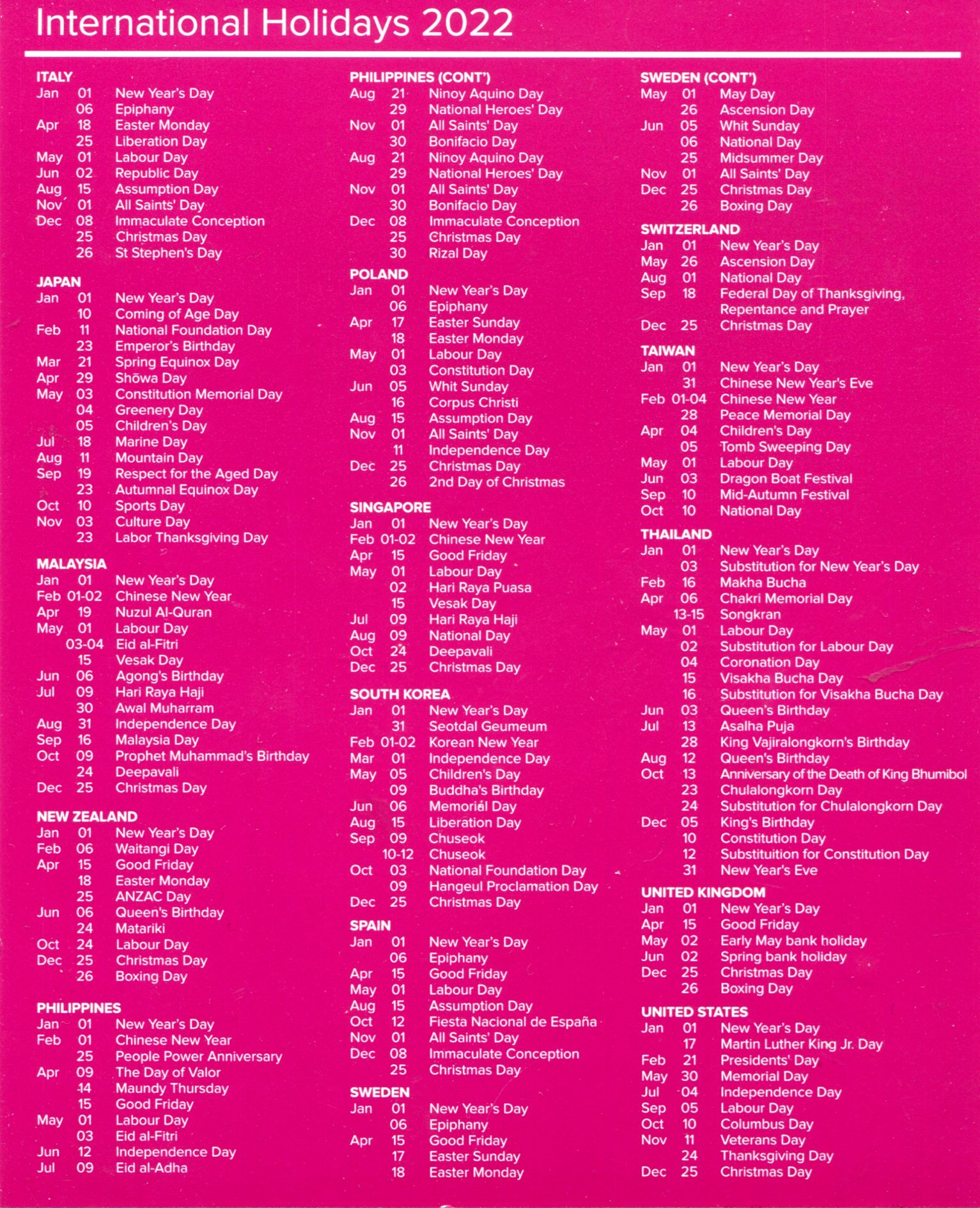This fascinating bit of ephemera came into the house not long ago. Fascinating to me, anyway: a list of holidays in various countries. The front.
It isn’t very large — about 5¼ x 4¼ inches — and is a page in a 2022 calendar produced by an international logistics firm. Holidays of 28 nations and the Hong Kong SAR. Why those? Maybe those are the countries in which the company does business.
Anyway, it’s good for browsing, a sort of mini version of endlessly interesting The American Book of Days or (more accurately) The International Book of Days.
So I browsed some February holidays. Shaheed Day, for example, two days past now for this year. I’d never heard of it. There’s quite a back story.
“This major public holiday in Bangladesh is always celebrated on February 21st,” notes Office Holidays.
“Known as Shaheed Day, ‘Ekushe’ (21st), Language Movement Day, Martyrs’ Day and ‘Shôhid Dibôs’ in Bengali, this day commemorates those who lost their lives in the struggle for the Bengali language in 1952.”
Eh? The holiday’s origin goes back to the old East Pakistan days, it seems. Soon after independence from the UK, the Urdu-speaking bosses in Karachi (Islamabad didn’t exist yet) went about trying to suppress the Bengali language in East Pakistan.
Naturally, the Bengalis resisted, and things came to a head on February 21, 1952, when police killed a number of students at a pro-Bengali language protest. That was like pouring gasoline on the situation, and eventually (a few stubborn years later), West Pakistan threw in the towel when it came to Bengali language suppression.
Also, much more recently, UNESCO made February 21 International Mother Language Day, for what that’s worth. A lot of mother languages are dying out. Recently, the last known native speaker of Yaghan, one of Chile’s indigenous languages, died at 93.
